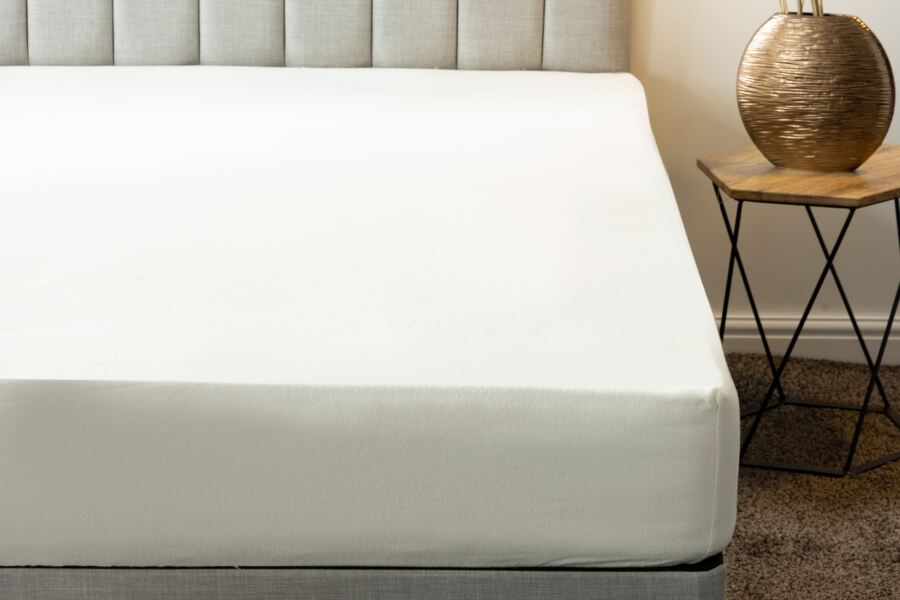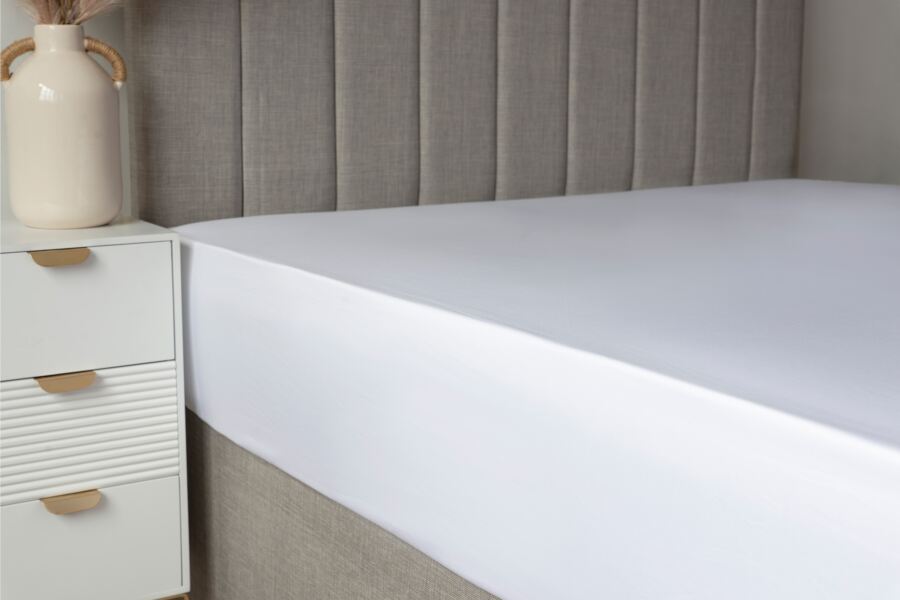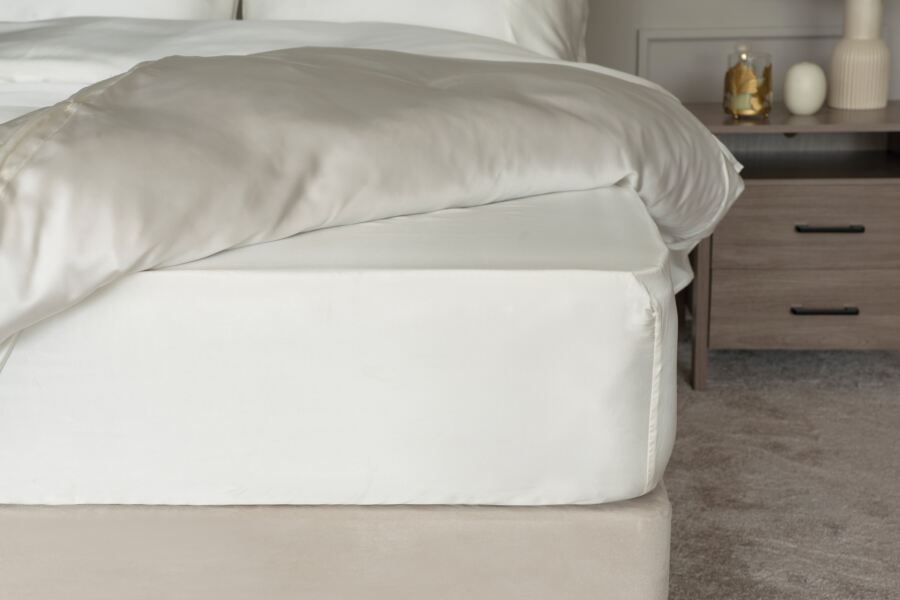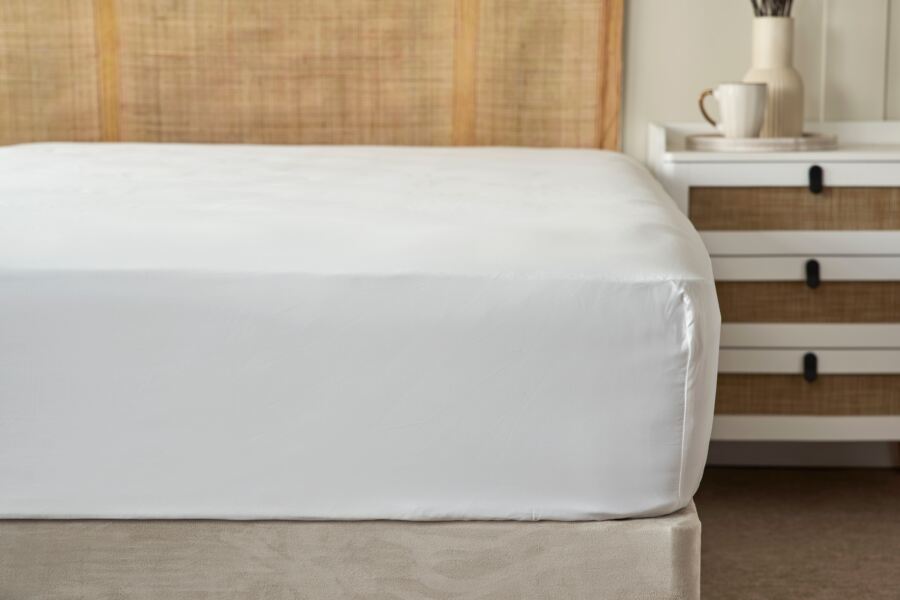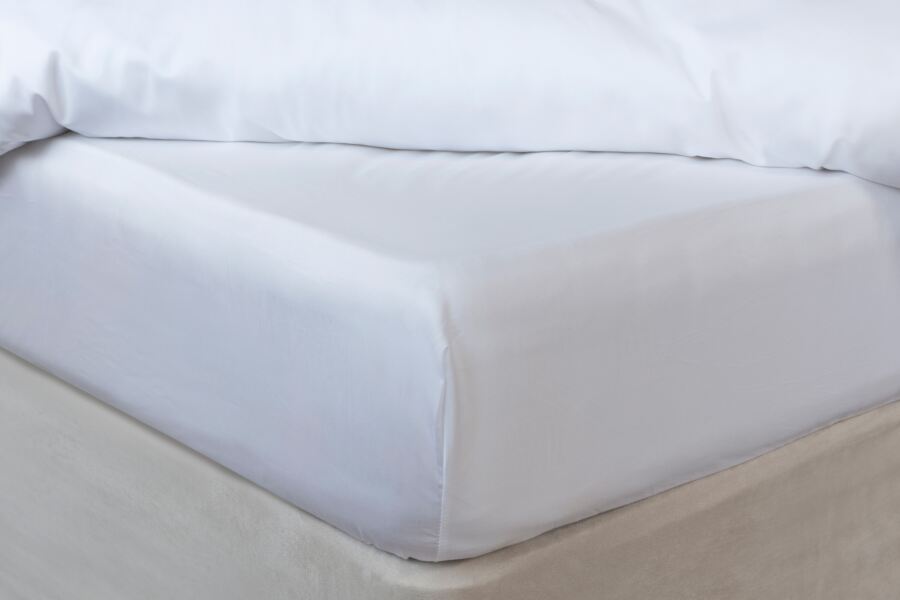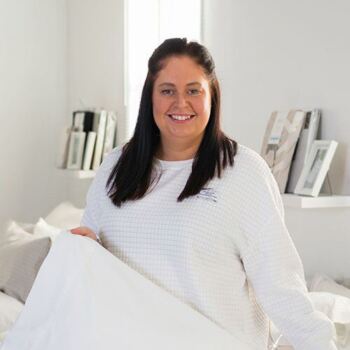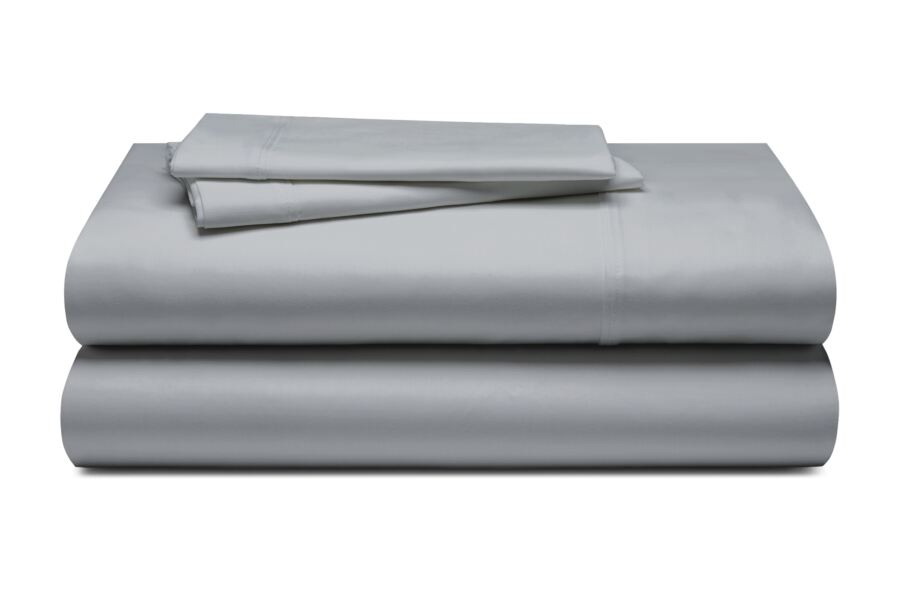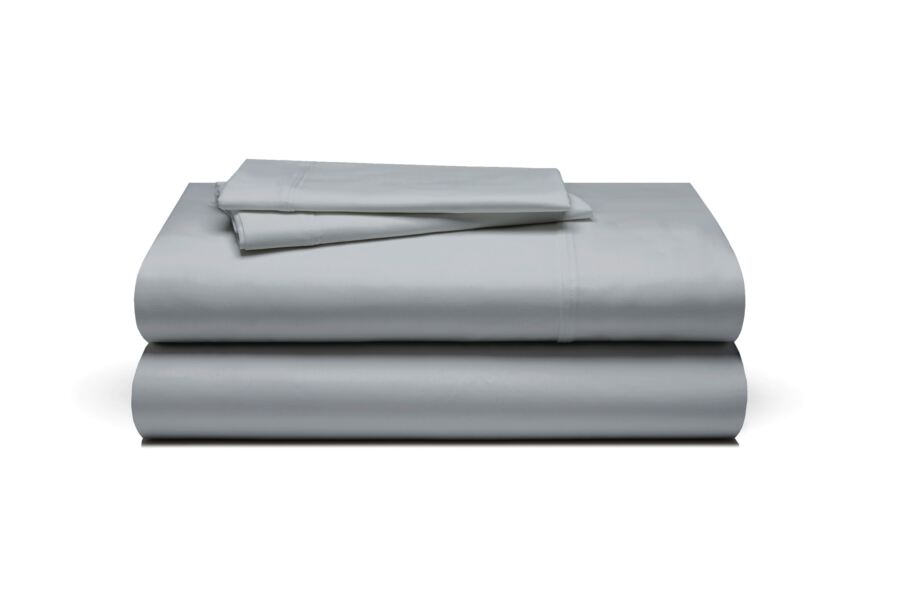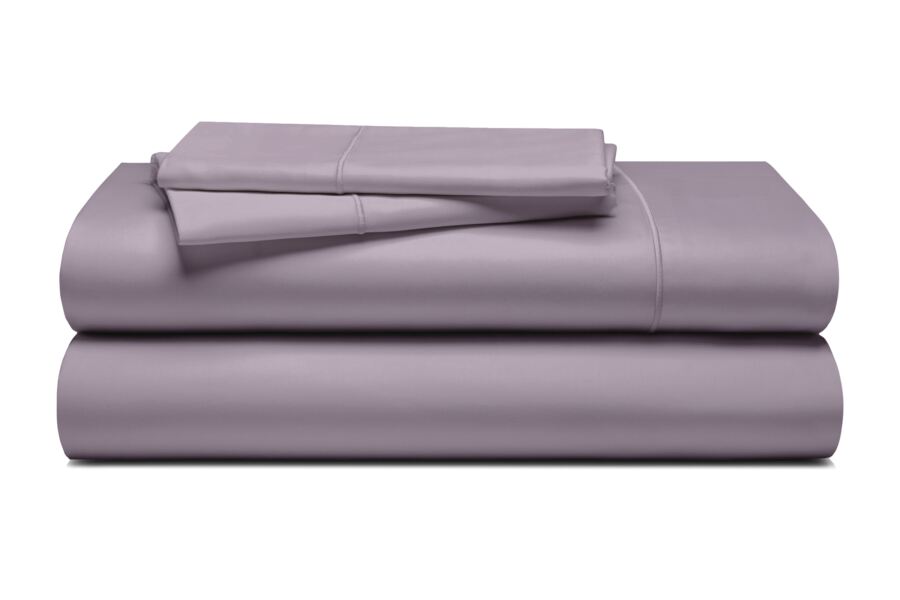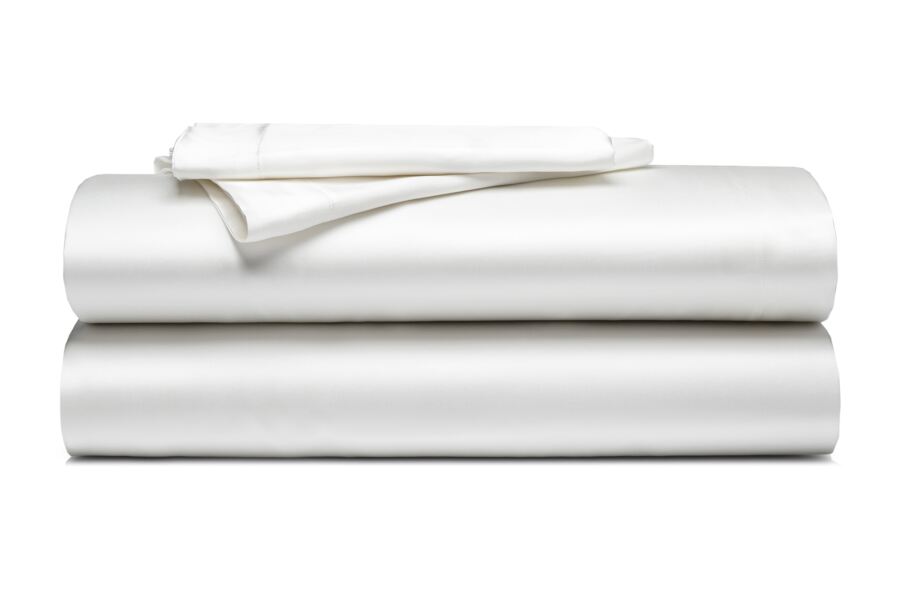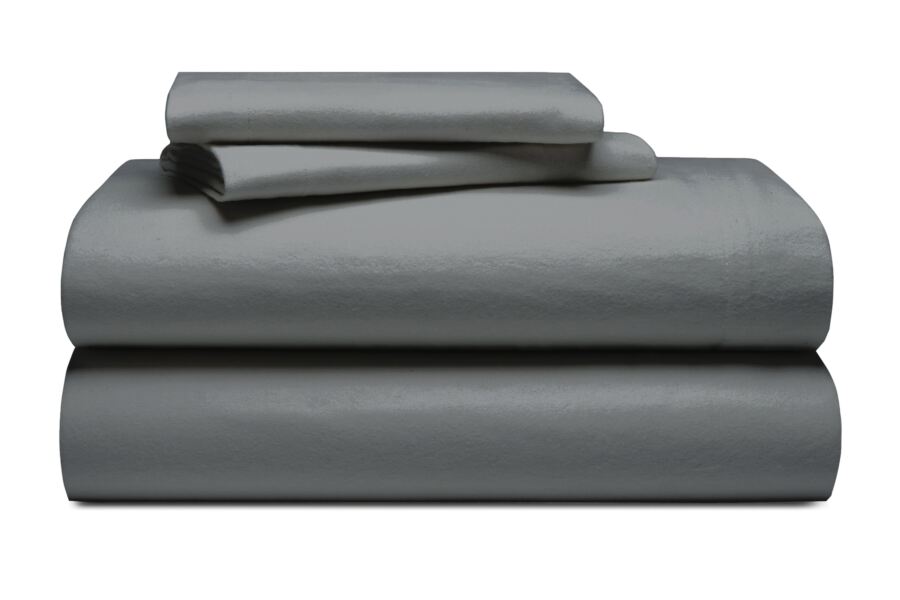Table of Contents
- How Long Should Bedding Last?
- The Most Durable Fabrics
- Does Thread Count Impact the Longevity of Bedding?
- Tips for Extending the Lifespan of Your Bedding
- FAQs
- Conclusion
When shopping for new bedding, you may be attracted to striking colours and soft textures but a factor that you should not forget about is durability. Investing in bedding that is made to last will save you money in the long run and ensure that less fabric waste ends up in landfills.
But what kind of bedding lasts the longest? And will anything else need to be compromised for durability?
In this article, we'll provide you with information about the strongest and most durable types of bedding, as well as what to look for when shopping for long-lasting bed linen. This info will help you choose bed sheets, duvet covers, and pillowcases that will last for many years to come!
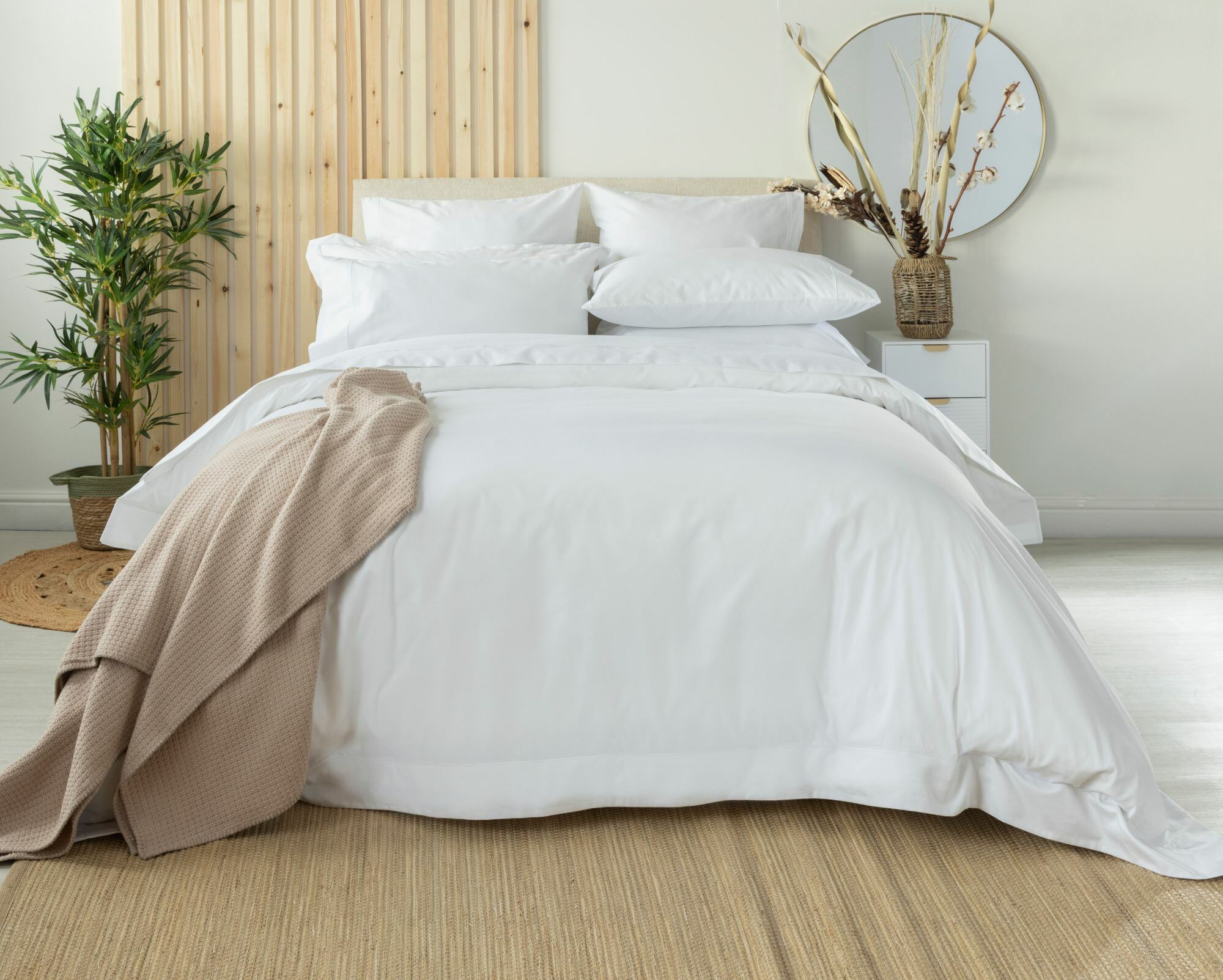
How Long Should Bedding Last?
The answer to this question depends on a variety of factors, including the type of material that the bedding is made from as well as how often it is washed. However, it is fair to assume that any bed linen you purchase should last for at least a good few years.
On average, your bedding should last anywhere between 2 years and 10 years, with some luxury bedding sets lasting as long as 15 years, if they are well cared for. Here are the average amount of washes you can expect to get out of your bed linen:
-
Pillowcases: 70 washes
-
Bed Sheets: 120 washes
-
Duvet Covers: 90 washes
Fortunately, there are many ways in which you can expand the lifespan of your bedding, but we'll discuss this topic in more detail later in the article.
The Most Durable Fabrics
Cotton is made from the cotton plant, which offers strong natural fibres. This base material is considered one of the most durable choices when it comes to bedding. However, there are various different types of cotton available, including Egyptian cotton, Pima cotton, and brushed cotton, and not all of them offer the same qualities.
Egyptian Cotton
Egyptian cotton is often used in hotels thanks to its luxurious feel and high thread count. This fabric is one of the softest and strongest bedding materials available, thanks to its long fibres and the optimal conditions of where it's grown.
Pima Cotton
Pima cotton, also known as Sea Island Cotton, is a type of long staple cotton that is actually stronger and more durable than regular cotton. This is the perfect material for those who may have sensitive skin and it has a 50% longer life expectancy than other cotton products.
Brushed Cotton
Brushed cotton, also referred to as flannelette, is a popular choice for those staying in colder climates as this fabric is very warm and fuzzy. Since it is woven from heavier cotton, it is very sturdy and can provide you with warmth and comfort for many years to come.
Silk
Silk bedding is often thought to be very delicate, but it is a lot more durable than most people think. Not only does silk feel soft on your body, but it is also made from one of the strongest natural fibres out there. You just need to be careful when you wash your silk bedding and remember to never use hot water to ensure its longevity.
Bamboo
Bamboo bedding has recently experienced a surge in popularity. Not only is this a sustainable fabric choice but it is also easier to care for and more durable than most other materials. The hypoallergenic qualities also help ensure a night of peaceful sleep.
Linen
Linen is a material that is made from the flax plant and is a popular fabric choice for sheets and duvet covers. It is slightly stronger than most cotton but the larger gaps between threads create opportunities for stretching and holes. When given the proper care, linen sheets can withstand many years of use.
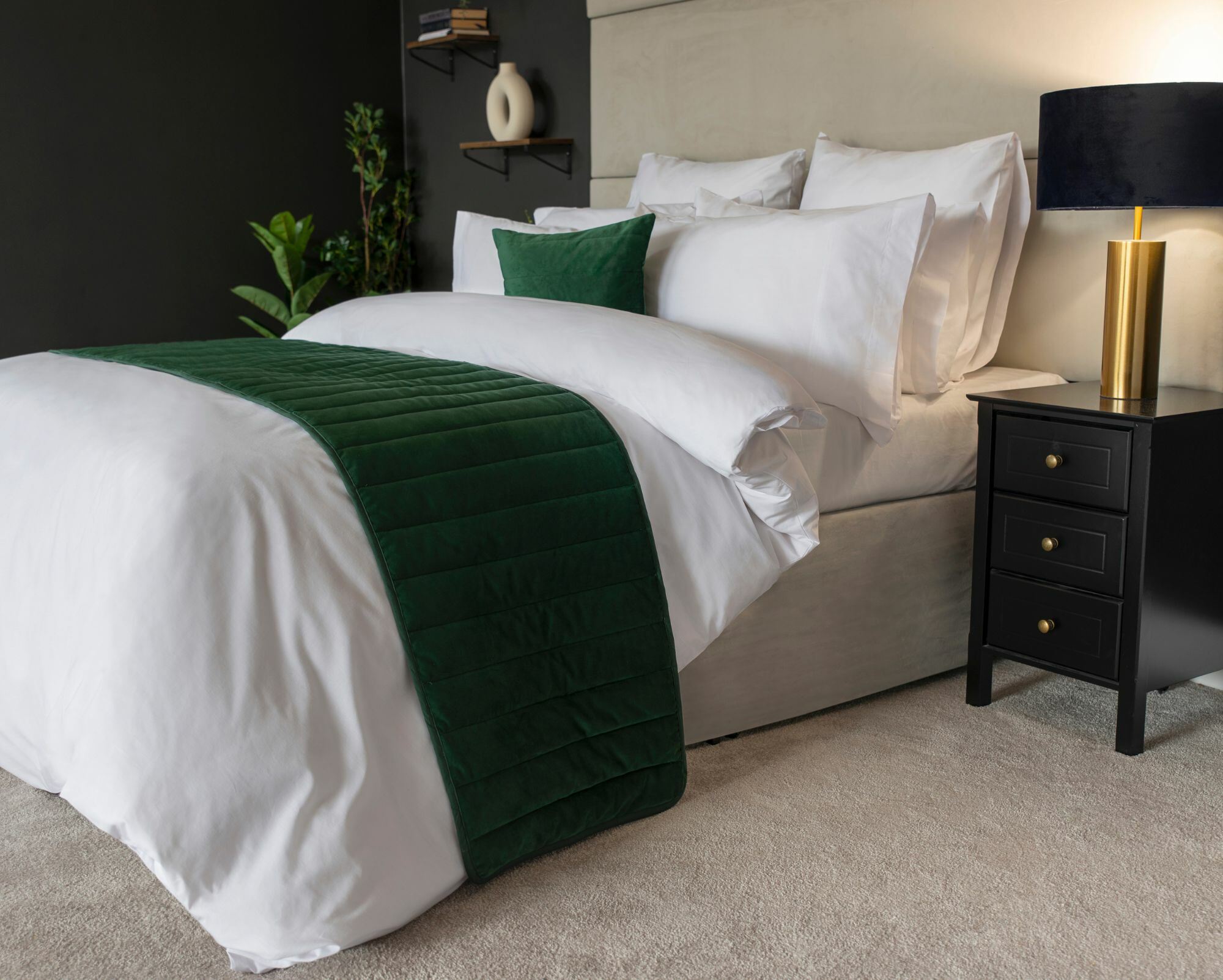
Does Thread Count Impact the Longevity of Bedding?
Thread count refers to the number of threads per square inch of fabric. Standard bed sheets typically have a thread count of around 180, with higher quality bedding boasting thread counts of 300 upwards. The higher the thread count, the softer and more luxurious the fabric feels.
When thread counts reach 1,000 and above, the fabric can often become more delicate and susceptible to snags. If you want durable yet soft bedding, a good thread count to go for would be between 200 and 500.
Tips for Extending the Lifespan of Your Bedding
Buy the best quality that you can afford
Everyone is on a different budget and some bed linen can be incredibly expensive. So, it's important that you buy the best quality bedding that you can personally afford. If 100% cotton sheets are outside of your budget, then you could always go for a quality poly cotton blend from a reputable company.
Avoid bedding with fancy details
While it can be tempting to choose a duvet cover with beautiful lace and embroidered details, these extra flourishes can actually make your bedding more susceptible to breakage. You may need to take extra care when washing and the bedding may snag and tear more easily than plain bed sheets and duvet covers.
Read the washing instructions carefully
Different types of fabric will have different washing instructions. It's essential that you follow these instructions carefully if you want to look after your bedding. In most cases, you should use a low heat setting and use cold water when possible. It is best to use a gentle cycle when you tumble dry your bedding. Take a look at our bedding washing guide for more information.
Use quality laundry detergent
If you want your soft furnishings to stand the test of time, you may want to invest in a quality fabric softener and mild detergent. Anything too harsh or packed with chemicals could end up damaging your bed sheets and duvet covers over time.
Spend less time in bed
If you're the type of person to work, eat, and relax in bed all day, you may want to consider changing your habits. While you should still get a good night's sleep, spending an extended time in bed could wear out your sheets sooner than you may have anticipated.
Don't allow your pets on the bed
It can be difficult to deter your furry friends from sleeping in bed with you, but their claws may end up damaging your bed linens. Furthermore, pets can carry things like fleas and dust mites, so it may not be the best idea to have them on your bed. Rather get them a comfy bed of their own and encourage them to sleep there.
Mend small tears
There is no need to throw your bed sheet away as soon as it gets a small tear. The more sustainable thing to do would be to mend these small tears with a needle and thread. This can end up adding years to your bedding, and in most cases, repairs are barely visible.
Rotate your fitted sheet
Don't put your fitted feet or flat sheet on the same way every time as this will result in quicker deterioration. Rather, try rotating your sheets so that they face a different direction each time you change your bedding.
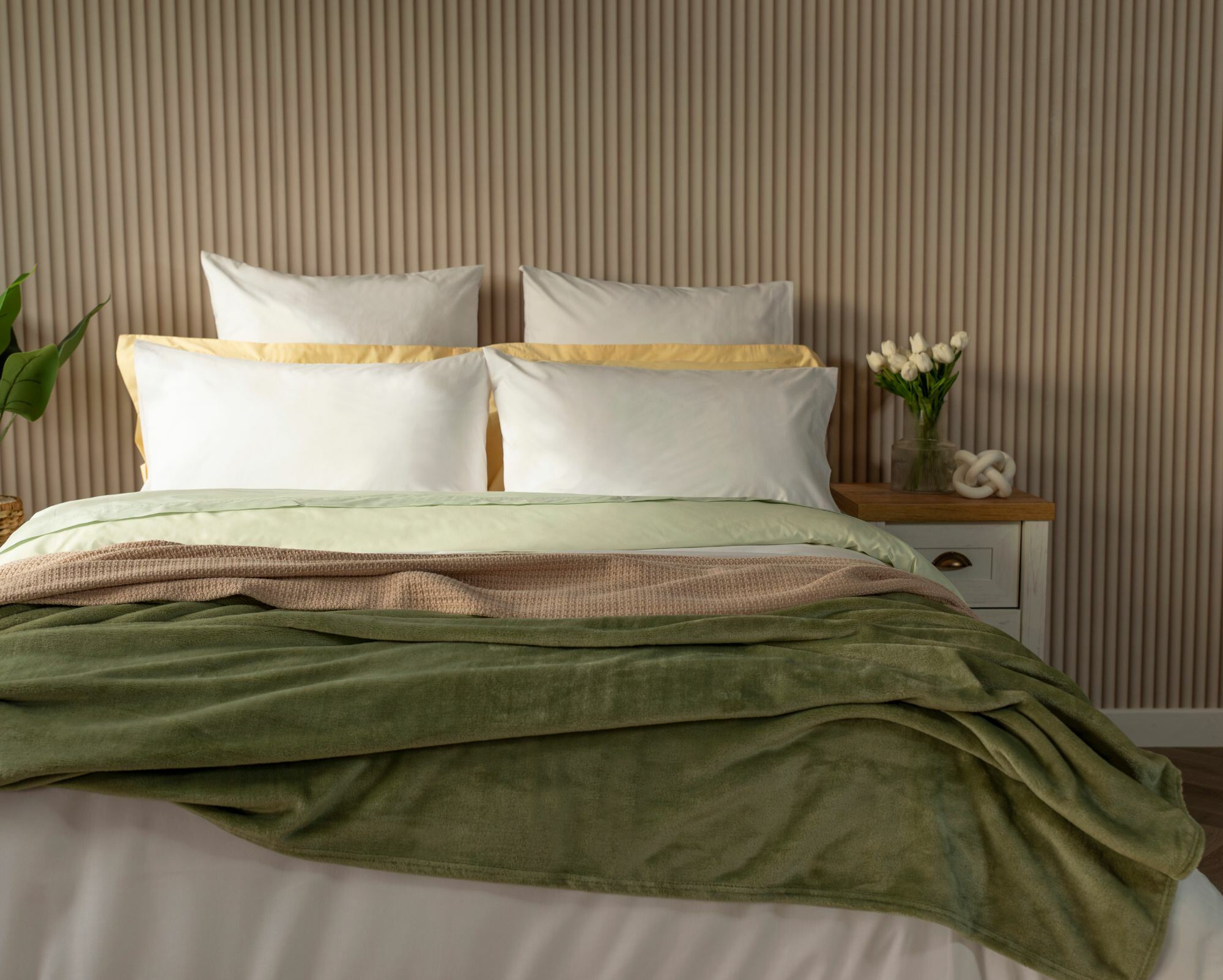
FAQs
What type of bedding has the shortest lifespan?
Synthetic materials, such as rayon and polyester, typically do not last as long as natural fabrics. If you're looking for long-lasting bedding, you may also want to stay away from delicate items like sateen sheets, which can tear rather easily.
What is the best weave for durability?
The weave of the fabric is another factor that you need to take into consideration when looking for highly durable bedding. A plain weave is usually your best bet, but other long-lasting options include twill weaves and basket weaves.
What size bedding do I need to buy to ensure it lasts?
It may seem as simple as checking the size of your mattress, pillows and duvet, but some mattresses are deeper than others so they require a larger size. Buying too-small bed sheets can cause them to rip and tear prematurely.
Does cotton bedding have any other benefits besides durability?
While cotton is undoubtedly the most popular bedding material in terms of longevity, this natural fabric has many other benefits. 100% cotton has a super soft feel and is praised for being breathable and hypoallergenic. Another great thing about cotton is that it will keep you warm in winter and cool in the summer months.
Where can I buy durable bedding in the UK?
Belledorm sells an extensive variety of top-quality bed linen, including 100% cotton bedding, silk pillowcases, mattress protectors, and duvet covers. This family-owned business also has its very own onsite factory, where all of the products are made.
Conclusion
By now you should have a more in-depth understanding of what types of bedding are the most durable. When shopping for new bed linen, you should always look at the fabric, thread count, size, weave, and washing instructions.
Getting extended use out of your bed sheets and duvet covers is important, not only for your wallet but for the earth too. Currently, the world produces around 92 million tonnes of fabric waste every year. The less that you can contribute to this, the better.

